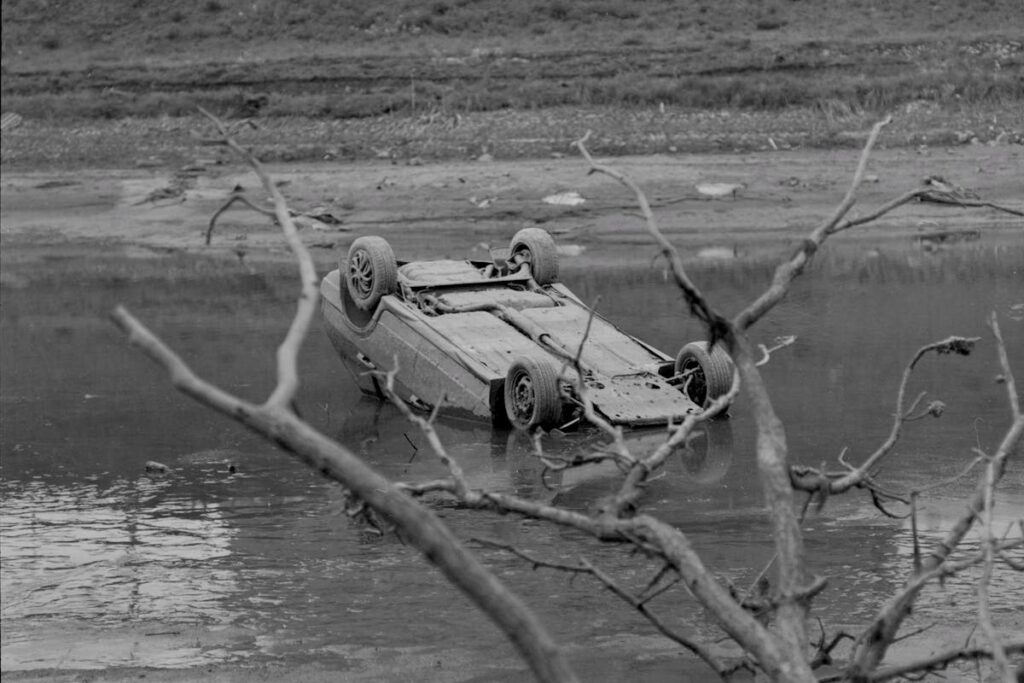Winning an auto accident lawsuit hinges on various critical factors, from the compelling nature of evidence to the undeniable clarity of liability. An organized presentation of medical records and credible witness statements can tip the scales in one’s favor. However, understanding the strategies of insurance companies and the nuances of state laws is paramount. With professional legal guidance, maneuvering through these complexities increases the likelihood of success, leaving one to ponder the next strategic steps toward securing justice.
Understanding the Legal Process for Auto Accident Claims
Maneuvering through the legal process for auto accident claims can be complex, yet understanding its intricacies is essential for those seeking justice and compensation. Mastery of mediation techniques is vital, as they often serve as a cost-effective and efficient alternative to lengthy court battles. Professional legal guidance can navigate the claim process, ensuring all procedural requirements are meticulously met. By skillfully employing mediation techniques, parties can often reach a favorable settlement without the unpredictability of a trial. Knowledge of the correct steps within the claim process, from filing to negotiation, empowers claimants to make informed decisions. With legal expertise at the forefront, individuals are better positioned to secure fair compensation, fostering a sense of closure and financial recovery.
Evaluating the Strength of Your Evidence
Evaluating the strength of your evidence is essential for the success of an auto accident lawsuit, as it directly impacts the potential for a favorable outcome. Attorneys must meticulously assess various evidence types, including eyewitness testimonies, medical records, photographs, and accident reports. Each piece must be scrutinized for evidence credibility, ensuring it withstands legal scrutiny. High-quality evidence can decisively shift a case’s direction, influencing settlement negotiations or court verdicts. Clients should be aware that credible evidence not only supports their claims but also enhances their negotiating power. Attorneys often collaborate with experts to validate evidence, further bolstering its reliability. Ultimately, the strength and credibility of evidence are key determinants in achieving a successful resolution in an auto accident lawsuit.
The Role of Liability in Auto Accident Lawsuits
After thoroughly evaluating the strength of evidence, understanding the role of liability becomes paramount in auto accident lawsuits. Liability determination is the process of establishing who is legally responsible for the accident. This critical step greatly influences the outcome of a lawsuit. In jurisdictions observing comparative negligence, the degree of fault assigned to each party can directly impact the compensation awarded. For example, if a plaintiff is found partially at fault, their recovery may be reduced proportionally. Legal professionals must adeptly navigate these nuances, ensuring their clients’ positions are ideally represented. Properly articulating the complexities of liability and comparative negligence empowers clients, potentially increasing their chances of a favorable verdict. Ultimately, mastering liability intricacies is essential for a successful legal strategy.
How Insurance Companies Impact Your Case
Insurance companies play a pivotal role in shaping the trajectory of an auto accident lawsuit. Their influence begins with insurance negotiations, a vital phase where the potential for settlement is explored. These negotiations often determine whether a case resolves quickly or proceeds to trial. An insurer’s determination of liability can prompt claim denials, greatly impacting the plaintiff’s chances of recovery. Insurance adjusters employ various strategies to minimize payouts, including disputing the extent of damages or questioning injury severity. Such tactics are designed to protect the company’s financial interests, sometimes at the expense of fair compensation. Understanding these dynamics is essential for plaintiffs seeking justice, as it underscores the importance of maneuvering through the complexities of insurer interactions to maximize lawsuit success.
Selecting the Right Legal Representation
When maneuvering the complexities of an auto accident lawsuit, selecting the right legal representation can greatly influence the outcome of the case. Essential to this process is choosing attorneys who not only possess a robust understanding of personal injury law but also demonstrate a proven track record in similar cases. Evaluating experience is paramount; seasoned attorneys bring strategic insight and negotiation prowess that can markedly sway the odds in the client’s favor. Prospective clients should conduct thorough research, examining the attorney’s case history, client testimonials, and success rates. An attorney’s ability to communicate effectively and their dedication to the client’s needs also play vital roles. Ultimately, informed decisions in legal representation serve as a catalyst for achieving favorable results in auto accident lawsuits.
State Laws and Their Influence on Auto Accident Cases
State laws wield a considerable influence over the trajectory of auto accident cases, shaping everything from liability determinations to compensation limits. Understanding state regulations is paramount, as legal nuances vary considerably across jurisdictions. Local statutes dictate key elements such as fault determination, whether a state follows a no-fault or at-fault system, and the statute of limitations for filing a claim. Jurisdictional differences also impact the cap on damages and the availability of punitive damages. An adept legal representative must navigate these intricacies, ensuring compliance and maximizing the client’s potential for success. By tailoring strategies to align with specific state laws, attorneys can effectively advocate for clients, enhancing the odds of a favorable outcome in auto accident lawsuits.
The Importance of Witness Testimonies
In many auto accident lawsuits, witness testimonies serve as a pivotal element in establishing the facts of the case. The presence of credible eyewitness accounts can greatly influence the outcome, providing an unbiased perspective that corroborates or contradicts the parties’ claims. Witness credibility is paramount; the reliability, consistency, and impartiality of their accounts can sway a judge or jury’s decision. Legal experts often emphasize the strategic importance of securing testimonies from individuals present at the scene, as their observations can clarify ambiguous details and timelines. Lawyers meticulously evaluate each eyewitness account for potential biases and factual accuracy, ensuring that the testimony strengthens their client’s position. Essentially, compelling witness testimonies often tip the scales toward a favorable verdict in auto accident lawsuits.
Settlement vs. Trial: Weighing Your Options
While witness testimonies can greatly impact an auto accident lawsuit, another critical decision awaits parties involved: whether to pursue a settlement or proceed to trial. Settlement tactics often offer a quicker resolution, with parties negotiating terms without the unpredictability of a courtroom. This approach can minimize expenses and emotional strain, providing a definitive outcome. However, for those confident in their case’s strength, trial strategies may yield a more favorable verdict. Trials allow for an extensive presentation of evidence and arguments, potentially leading to higher compensation. The decision weighs heavily on factors such as risk tolerance, financial considerations, and the specific circumstances of the case. Engaging skilled legal counsel is paramount to navigate these options and achieve the desired outcome.
Common Mistakes That Could Affect Your Case Outcome
In the pursuit of a favorable outcome in an auto accident lawsuit, avoiding common missteps is essential. Incomplete evidence collection can severely undermine a case, while ignoring medical advice may weaken credibility and damage claims for compensation. Additionally, delayed legal action can jeopardize the ability to present a robust case, emphasizing the importance of timely and strategic decisions.

Incomplete Evidence Collection
Many plaintiffs find themselves at a disadvantage due to the pitfalls of incomplete evidence collection in auto accident lawsuits. Incomplete documentation, such as missing police reports or medical records, weakens a case’s foundation. Without extensive documentation, critical details may be overlooked, undermining claims and reducing settlement potential. Moreover, reliance on an insufficient witness base can greatly impact the outcome. Witnesses are vital for corroborating events and establishing credibility. When witness statements are sparse or lacking credibility, the defense gains leverage, challenging the plaintiff’s narrative. Legal experts emphasize the importance of thorough evidence collection. Ensuring all relevant documentation and securing reliable witnesses can dramatically improve litigation prospects. Clients are advised to consult legal professionals to guide evidence-gathering processes, enhancing their odds of success.
Ignoring Medical Advice
Despite the urgency of initial medical evaluations following an auto accident, plaintiffs sometimes make the critical error of disregarding prescribed medical advice, greatly jeopardizing their case outcomes. Medical compliance is not merely a health imperative; it is a legal necessity. Failure to adhere to treatment plans can be construed as negligence, weakening the plaintiff’s claim. Defense attorneys often exploit gaps in medical compliance to argue that injuries are either exaggerated or unrelated to the accident. In addition, extensive treatment documentation serves as pivotal evidence, substantiating the extent and causation of injuries. Plaintiffs who meticulously follow medical advice and maintain thorough treatment documentation greatly bolster their credibility in court, thereby enhancing their odds of a favorable lawsuit outcome. Legal success demands disciplined medical adherence.
Delayed Legal Action
How often do plaintiffs undermine their own cases by delaying legal action after an auto accident? Surprisingly, it occurs more frequently than one might expect. Delayed filing can greatly impact the outcome of a case, as the statute of limitations imposes a strict deadline for initiating legal proceedings. Failure to act promptly may result in the loss of vital evidence and witness testimonies, weakening the plaintiff’s position. In many jurisdictions, the statute limitations vary, but the consequences of missing these deadlines are universally severe. Plaintiffs must understand the urgency of timely legal action to preserve their rights and maximize their chances of a favorable verdict. Consulting an experienced attorney promptly guarantees that the case is filed within the permissible timeframe, safeguarding potential compensation.
Frequently Asked Questions
What Damages Can I Claim in an Auto Accident Lawsuit?
In an auto accident lawsuit, one can claim damages for medical expenses, property damage, lost wages, and pain and suffering. Securing thorough compensation requires meticulous documentation and skilled legal representation to guarantee justice and financial recovery.
How Long Does an Auto Accident Lawsuit Typically Take to Resolve?
The lawsuit timeline for resolving an auto accident case varies considerably based on case complexity. Generally, it can range from a few months to several years. Skilled legal representation can help navigate complexities efficiently, ensuring timely resolution.
Can I Sue for Emotional Distress After an Auto Accident?
In auto accident cases, suing for emotional distress requires proving emotional trauma and meeting specific legal requirements. A skilled attorney can guide clients through this complex process to guarantee a persuasive argument aligns with jurisdictional standards.
What if the Other Driver Is Uninsured or Underinsured?
When involved in an accident with uninsured motorists, pursuing damages can be challenging. However, underinsured coverage may provide compensation. Consulting a legal expert guarantees maneuvering these complexities effectively, maximizing potential recovery and offering peace of mind.
How Does Comparative Negligence Affect My Lawsuit?
Comparative fault considers each party’s negligence in an auto accident lawsuit, impacting compensation under the negligence standard. Clients should understand that proving minimal responsibility can greatly strengthen their case and potentially increase their settlement.

